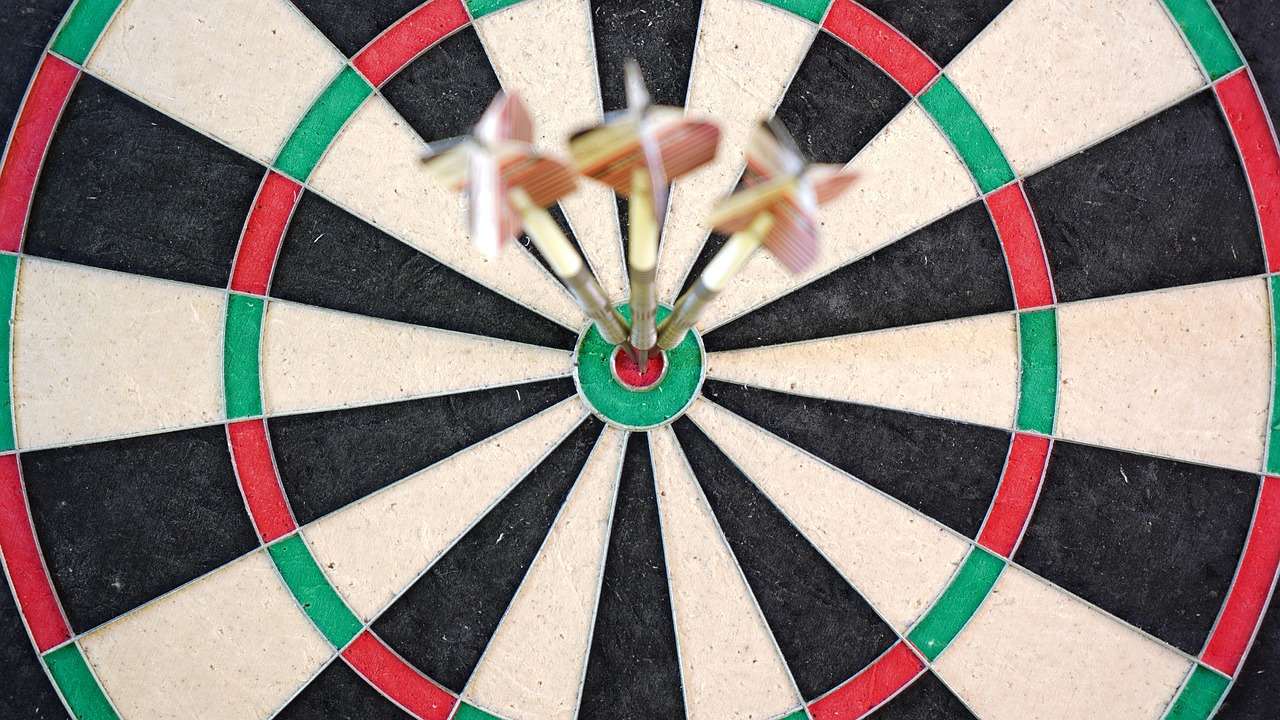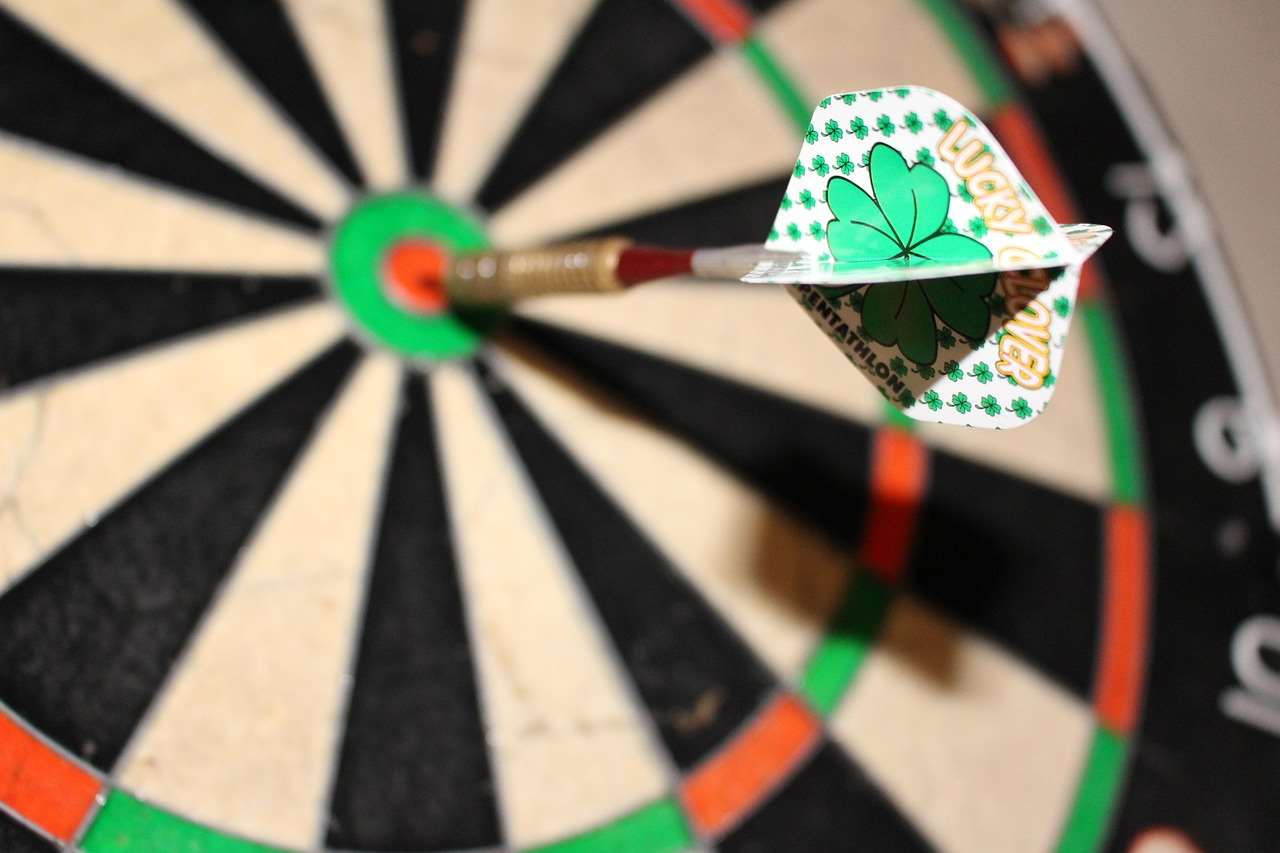The line between strategic play and unsportsmanlike conduct can be blurry, but generally, **is gamesmanship ever acceptable within darts etiquette**? The answer is a nuanced “sometimes,” depending heavily on the context and intention; a little light-hearted banter might be acceptable, but outright cheating never is. This article will explore the subtle boundaries of gamesmanship in darts, examining specific examples and offering guidance on maintaining fair play while still enjoying the competitive spirit of the game.
 Still Using Pen & Paper (or a Chalkboard)?!
Still Using Pen & Paper (or a Chalkboard)?! 
Step into the future! The Dart Counter App handles all the scoring, suggests checkouts, and tracks your stats automatically. It's easier than you think!
Try the Smart Dart Counter App FREE!Ready for an upgrade? Click above!
Understanding Darts Etiquette: The Foundation of Fair Play
Before delving into the murky waters of gamesmanship, it’s essential to understand the established **darts etiquette**. This unspoken code of conduct ensures fair play, mutual respect, and a positive experience for all players. Key elements include:
- Respect for your opponent: This means refraining from disruptive behavior, avoiding excessive celebration that could be perceived as taunting, and acknowledging good throws with a nod or word of encouragement.
- Maintaining a quiet environment: When your opponent is throwing, maintain silence and avoid any movements that could distract them. This includes stepping away from the oche (throwing line).
- Calling scores accurately: Clearly and accurately announce the score after each throw. Any ambiguity should be resolved quickly and fairly.
- Adhering to the rules: Familiarize yourself with the official rules of the game and abide by them consistently. This includes knowing when a dart is “in” or “out” and understanding the regulations regarding foot placement.
- Accepting defeat gracefully: Win or lose, congratulate your opponent on a good game. Avoid making excuses or displaying sore loser behavior.
These basic principles form the bedrock of **good sportsmanship** in darts. When these are followed, everyone can enjoy a level playing field and a positive competitive atmosphere.

Where Gamesmanship Begins: Intent and Interpretation
The acceptability of gamesmanship hinges on intent. A harmless attempt to gain a slight advantage might be tolerated, while blatant cheating is universally condemned. Consider these examples:
- Walking in front of your opponent: Accidentally walking in their line of sight can be forgiven, but deliberately doing so repeatedly to disrupt their focus crosses the line.
- Slightly exaggerating your score: This is outright cheating and completely unacceptable. Honesty is paramount.
- Friendly banter and psychological ploys: A little light-hearted trash talk can add to the competitive fun, provided it remains respectful and doesn’t become personal or offensive. Remember that playing with **darts handicap rules** can alleviate some of the pressure and potential for intense gamesmanship.
Ultimately, the key is to ask yourself: “Am I trying to gain an unfair advantage, or am I simply adding a bit of spice to the game?” If the answer leans towards the former, it’s best to refrain. If you are new to the game, check out Basic Darts Fundamentals for Beginners to get a grasp of what is commonly accepted.
Examples of Acceptable Gamesmanship (Maybe)
These scenarios fall into a gray area and their acceptability depends heavily on the context and the players involved:
- Strategic delaying: Taking a little extra time before your throw to compose yourself or assess the situation might be considered strategic, but excessively slow play can be frustrating and perceived as unsportsmanlike.
- Calling attention to a missed dart: Pointing out a missed dart, especially if your opponent is unaware, could be seen as helpful or as a subtle attempt to apply pressure. It’s best to err on the side of caution and let your opponent realize it themselves.
- Suggesting a different checkout route: This could be interpreted as helpful advice or a sneaky attempt to mislead your opponent. Consider your relationship with the player and whether they are likely to appreciate your input.
Remember, what’s acceptable in a casual game with friends might not be acceptable in a more formal competitive setting. Always gauge your opponent’s reaction and be prepared to back down if they seem uncomfortable.

Unacceptable Forms of Gamesmanship: Crossing the Line
There are certain behaviors that are unequivocally unacceptable in darts. These include:
- Distracting your opponent while they are throwing: This includes making noises, moving erratically, or standing too close to the oche.
- Tampering with the dartboard or darts: Altering the board or your opponent’s darts to gain an advantage is blatant cheating.
- Intentionally miscalling scores: Deliberately understating your opponent’s score or overstating your own is dishonest and unethical.
- Using abusive language or personal insults: Verbal abuse has no place in darts or any other sport.
- Violating the rules of the game: Ignoring or bending the rules to your advantage is unfair and disrespectful to your opponent.
These actions are not only against the spirit of the game but can also lead to penalties, disqualification, and damaged reputations. Maintaining fair play is always the better option.
Psychological Warfare vs. Unsportsmanlike Conduct: A Delicate Balance
A key consideration when assessing “is gamesmanship ever acceptable within darts etiquette?” is distinguishing between psychological tactics and outright unsportsmanlike conduct. A little psychological pressure is often part of competitive sports, but it should never cross the line into harassment or unfair play. Psychological warfare might include:
- Maintaining a confident demeanor: Projecting an air of confidence can sometimes intimidate your opponent.
- Using strategic silences: Pausing before your throw can create a sense of tension and uncertainty.
- Adopting a particular pre-throw routine: Consistency in your routine can help you maintain focus and control.
However, psychological tactics become unacceptable when they involve:
- Personal attacks or insults: Targeting your opponent’s weaknesses or insecurities is unethical and harmful.
- Constant complaining or whining: Excessive negativity can disrupt your opponent’s focus and create a toxic atmosphere.
- Blaming external factors for your mistakes: Refusing to take responsibility for your own performance is a sign of poor sportsmanship.

The Role of Referees and Tournament Officials
In formal darts tournaments, referees and officials play a crucial role in enforcing the rules and maintaining order. They have the authority to issue warnings, penalize players, and even disqualify them for unsportsmanlike conduct. Common infractions that warrant intervention include:
- Foot faults: Stepping over the oche line is a violation of the rules.
- Slow play: Referees can issue warnings to players who are deliberately delaying the game.
- Disruptive behavior: Excessive noise, taunting, or abusive language can result in penalties.
It’s important to respect the decisions of referees and officials, even if you disagree with them. Their primary goal is to ensure a fair and consistent playing environment for all participants. If you disagree with something during an informal game, consider how to make darts fairer with handicap rules, which might prevent the need for such gamesmanship in the first place.
Cultivating Good Sportsmanship: A Guide for Dart Players
Ultimately, the responsibility for maintaining good sportsmanship lies with each individual dart player. Here are some tips for cultivating a positive attitude and promoting fair play:
- Focus on your own game: Concentrate on improving your skills and performance, rather than trying to undermine your opponent.
- Respect your opponent: Treat them with courtesy and respect, regardless of their skill level.
- Be a gracious winner and a good loser: Celebrate your victories modestly and accept your defeats with dignity.
- Adhere to the rules of the game: Familiarize yourself with the rules and abide by them consistently.
- Promote a positive atmosphere: Encourage your fellow players and create a welcoming environment for everyone.
- Learn from your mistakes: Use your losses as opportunities to learn and improve.

Is Gamesmanship Ever Acceptable Within Darts Etiquette? A Summary.
Revisiting our initial question, “is gamesmanship ever acceptable within darts etiquette?” The answer remains a qualified yes. A touch of friendly banter or a minor strategic delay might be acceptable in some contexts, but blatant cheating, harassment, or rule violations are never okay. The key is to exercise good judgment, respect your opponent, and prioritize fair play above all else.
Remember that the goal of darts is to have fun and enjoy the competition. By adhering to the principles of good sportsmanship, you can help create a positive and rewarding experience for yourself and your fellow players. Don’t forget that you can always find alternative darts rules for home play if you are looking for a completely informal game.
Practical Tips for Handling Unsportsmanlike Conduct
Despite your best efforts, you may occasionally encounter players who engage in unsportsmanlike behavior. Here are some tips for handling these situations:
- Stay calm and composed: Don’t let your emotions get the better of you. Reacting angrily will only escalate the situation.
- Address the behavior directly: Politely but firmly let the player know that their behavior is unacceptable.
- Involve a referee or official: If the behavior persists, seek the intervention of a referee or tournament official.
- Document the incident: Keep a record of the date, time, and details of the incident.
- Focus on your own game: Don’t let the unsportsmanlike behavior distract you from your own performance.
Remember that you have the right to play in a fair and respectful environment. Don’t hesitate to stand up for yourself and others who are being subjected to unsportsmanlike conduct. As a side note, when playing with family it is useful to consult tips on adapting dart game rules for children, which may eliminate some of the tension associated with traditional rules.

Conclusion: Striving for Fair Play and Enjoyable Competition
In conclusion, while a very subtle degree of gamesmanship *might* be acceptable within the wide umbrella of darts etiquette, it’s a slippery slope. The focus should always be on fostering a respectful and fair environment. Prioritize honesty, integrity, and respect for your opponents. By doing so, you contribute to a more enjoyable experience for everyone involved and uphold the true spirit of the game. Now go practice those checkouts and remember to always throw with sportsmanship in mind!